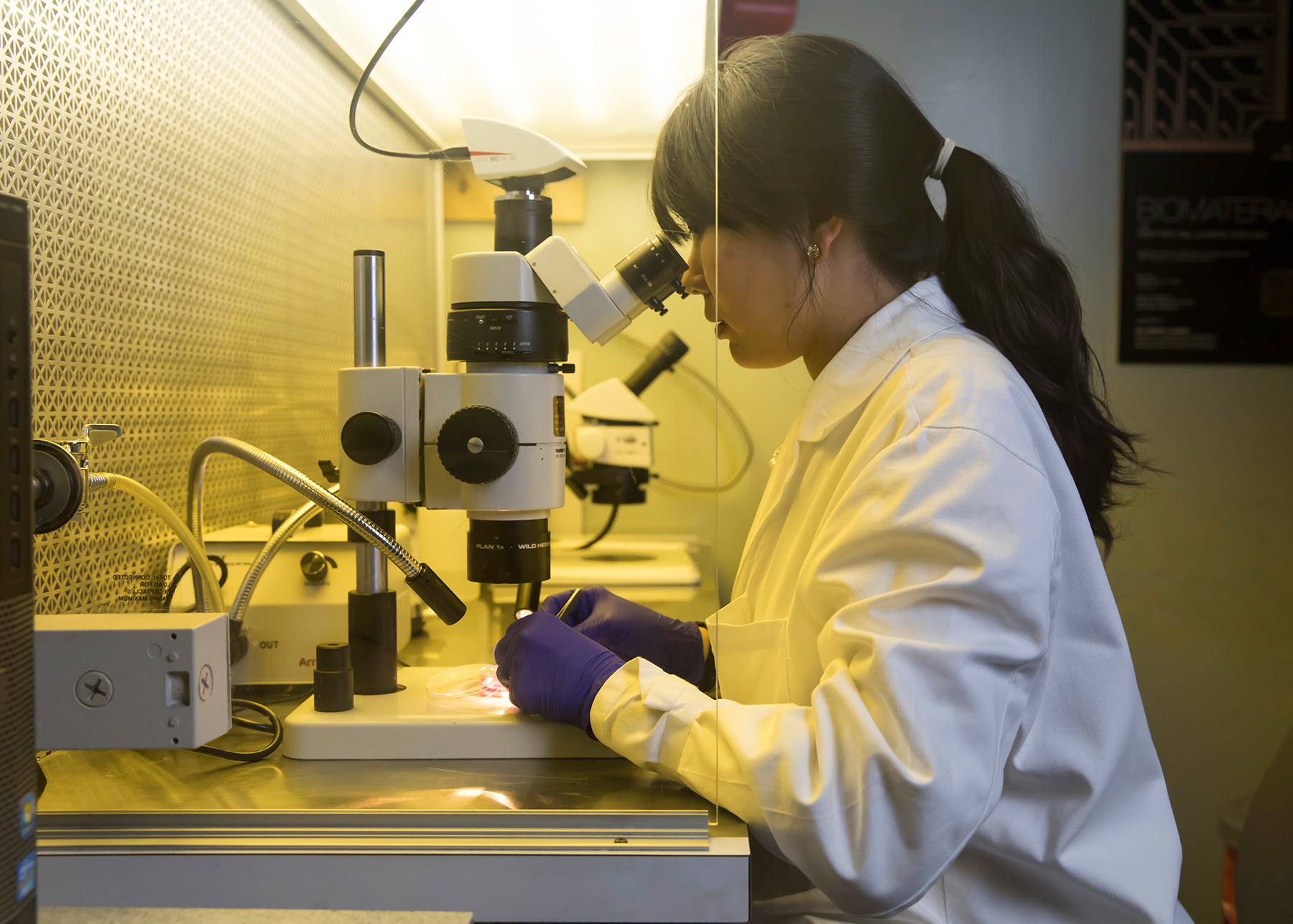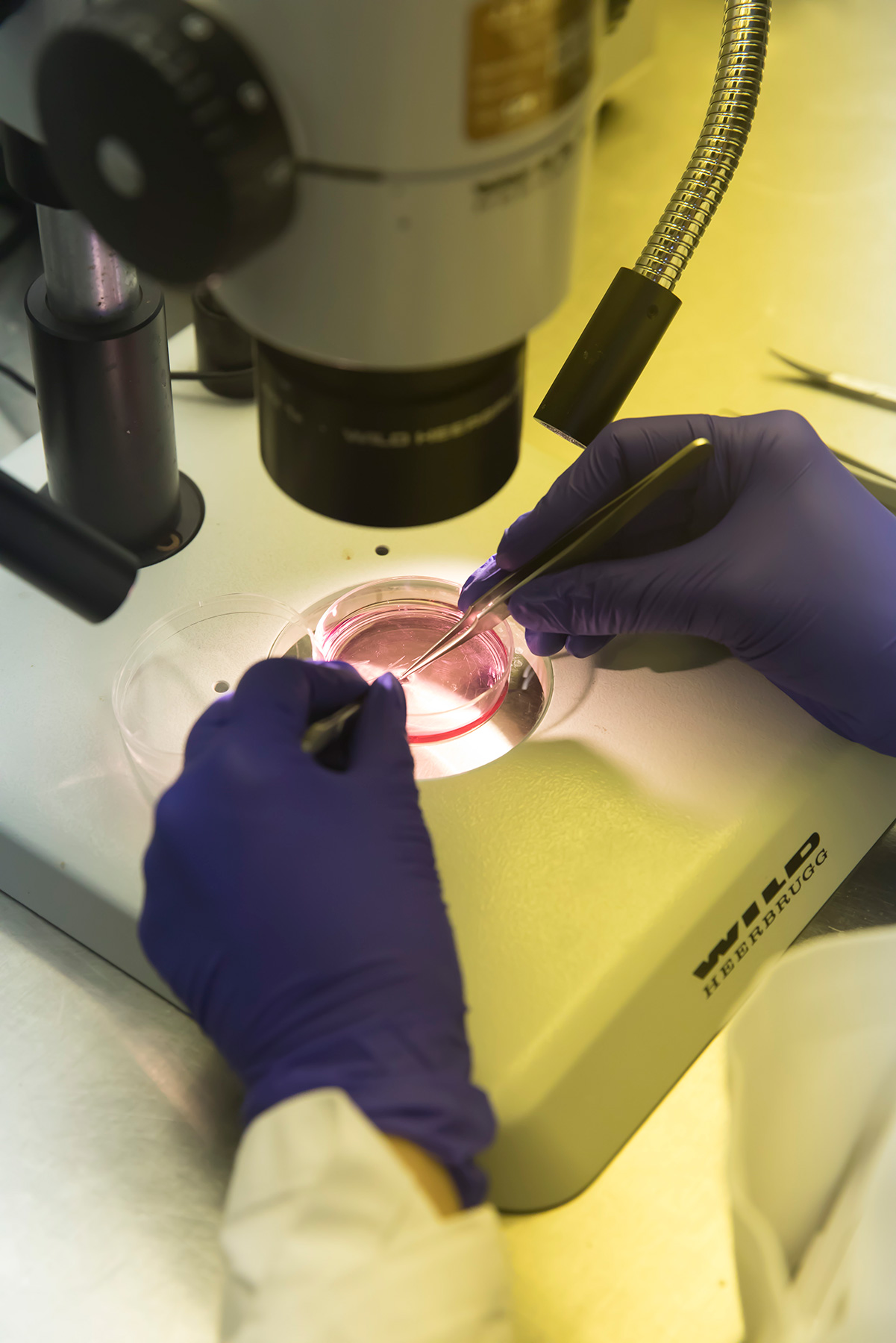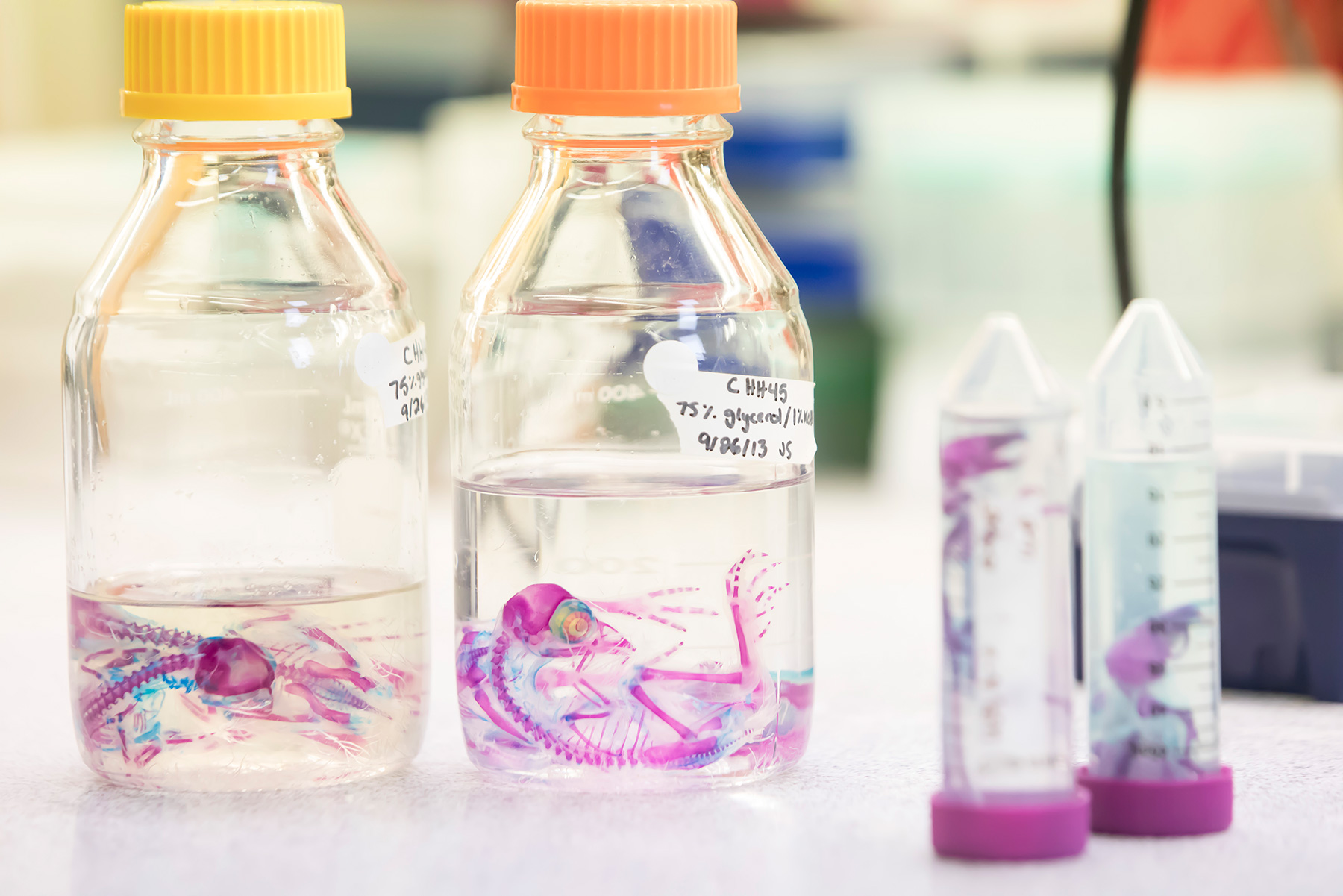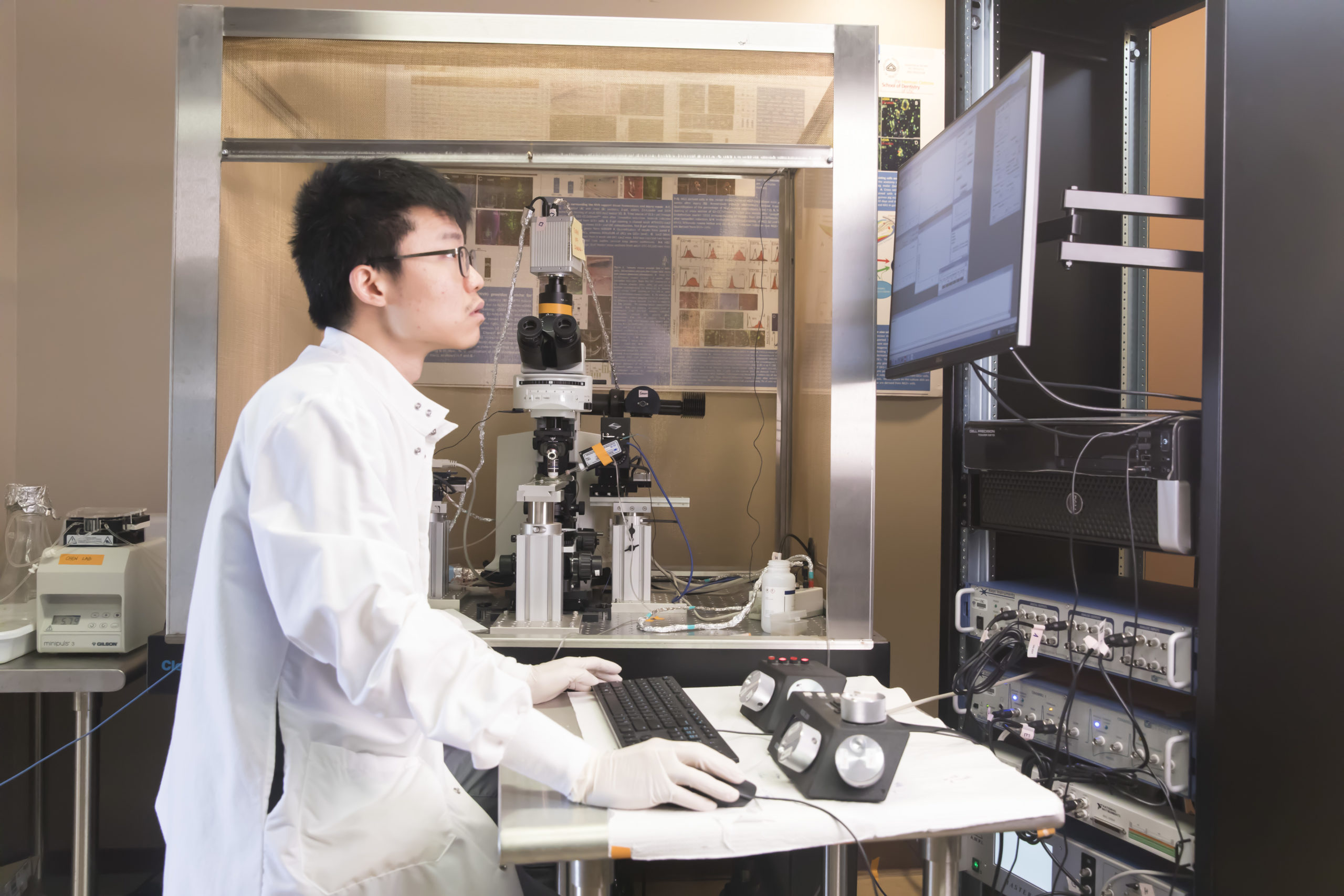
CRANIOFACIAL BIOLOGY PHD PROGRAM


Empowering Craniofacial Biomedical Researchers of the Future
The Craniofacial Biology PhD program is designed for students who are interested in earning a PhD in biomedical fields including but not limited to craniofacial biology.
In addition to providing students with rigorous training, we offer an opportunity to explore a wide range of research projects, core courses that provide a solid biomedical foundation, and an interdisciplinary and collaborative environment.
The interdisciplinary PhD program offers individualized course options and provides flexibility to accommodate a variety of research interests. Our goal is preparing students to become advanced research scientists and the next generation of leaders in craniofacial research.

Our program provides a flexible, stimulating and uniquely structured curriculum for well-qualified candidates, with an emphasis on:
- Selection of students dedicated to a career in craniofacial biology, dentistry and biomedical research
- Exceptional environment for candidates to fulfill their research objectives
- Formal educational classes addressing translational and clinical research
- Mentored relationships with faculty who value their role as an educator of the next generation of dental medicine professionals
- Experience through coursework, seminars and workshops that enables students to write competitive grants
Ostrow’s program focuses primarily on development and disease as well as prokaryotic and eukaryotic genetics. Significant emphasis is placed on understanding:
- Normal and pathological craniofacial development
- Stem cell biology and tissue engineering
- Biomineralization of dental hard tissues
- Biosynthetic and biocompatible materials development
- Dental pathologies affecting the dentition and surrounding tissues, including periodontitis, osteonecrosis and pulpitis
- Genetic disease
The PhD program in craniofacial biology requires didactic courses of instruction, including classes in craniofacial genetics and development, bioethical issues, statistics and scientific writing. The program also requires a research project to be satisfactorily completed prior to graduation.

Curriculum & Timeline
During the first two years of the PhD program, students focus on their research while solidifying their knowledge base by taking classes on topics of relevance.
In year 1, students complete approximately 25 units, which includes both classroom and laboratory work over the fall, spring and summer semesters. At the end of year 1, students and their mentor select a research project.
In year 2, students complete courses tailored to their research interests and continue lab work as a Research Assistant. By the end of year 2, students should have completed the Qualifying Exam, which includes a condensed version of a written National Institutes of Health (NIH) F31 fellowship proposal and an oral defense of their research project.
In years 3-5, students focus fully on their research, developing their project, attending conferences and professional development workshops, and ultimately writing and defending their thesis. Students are also trained in giving research presentations by participating in their PhD programs seminar series, in which all aspects of their talks are critiqued by their peers. An individual development plan (IDP) and periodic meetings with the students’ thesis committee provide scientific support, ensuring progress toward the PhD. By the time students defend their thesis, they are expected to be experts in their field and to have achieved considerable independence, providing outstanding preparation for a postdoctoral fellowship or other science-related careers.
Core Courses and Curriculum
- CBY 589 Craniofacial Biology (4 units)
- CBY 585 Systematic Research Writing (3 units)
- INTD 531 Cell Biology (4 units)
- INTD 561 Molecular Biology (4 units)
A total of 60 units are required for the PhD. Eight didactic courses at the graduate level are required. The core required CBY courses are CBY 589, CBY 585, INTD 531 and INTD 561 as listed above. The remaining graduate-level courses may be selected from courses offered by any department, following consultation with the student’s graduate mentor. Graduation requires a minimum GPA of 3.0 and satisfactory completion of a research project.
Qualifying Exam
Students must pass both the written and oral portions of the qualifying exam during the second year of study. The written portion will require students to write a research grant proposal, in a format modeled after an NIH F31 fellowship application. The oral defense portion will include both a formal presentation of the grant proposal, as well as a forum in which the guidance committee asks general questions related to the student’s research.
Dissertation
Each student’s research is reported in a dissertation written under the guidance of the student’s mentor and the dissertation committee. The dissertation must demonstrate the student’s capacity for independent research, scholarly achievement and technical mastery of a specific field.